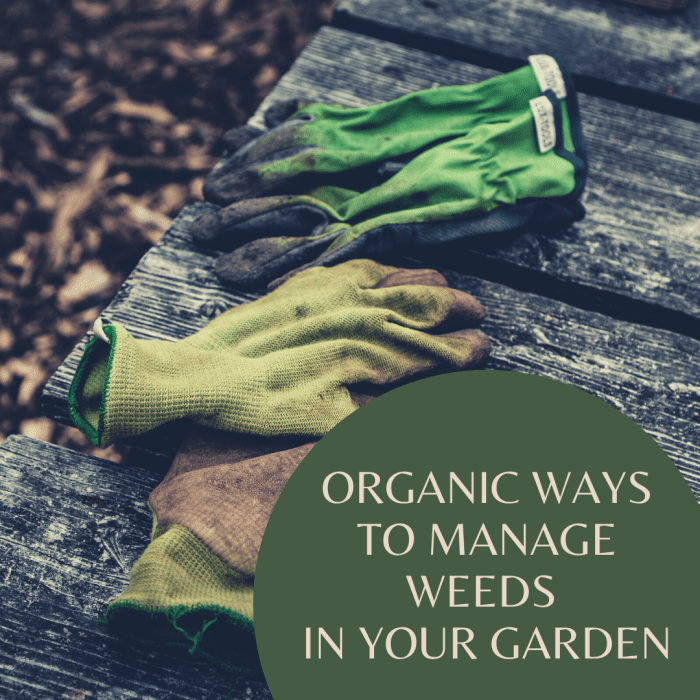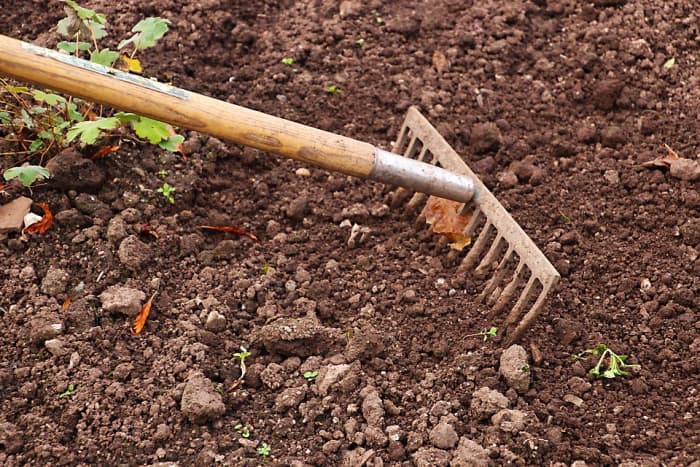How To Treat Weeds In A Garden
Chris Sherwood is a project manager by day and avid home and garden scholar by night who loves to share his trials and success with others.

All gardeners at some point will need to decide on a way to control weeds in their garden.
Photo by Jonathan Kemper on Unsplash
All Gardeners Must Contend With Weeds
Weeds play an unavoidable role in gardening regardless of where you live in the world. While the types of weeds may change based on your location, their ability to pop up in even the most inhospitable places is one of nature's true miracles. But when these little miracles start to compete for space and nutrients with the plants you actually want in your garden, weeds quickly become a never-ending nuisance that have helped launch a billion dollar chemical industry for commercial weed killers. With increasing evidence that many of these commercial products not only harm the environment but can also cause cancer and other physical harm to your family and the other living things on your property, some gardeners prefer a more natural method for weed management. Here are a few organic alternatives to help you reclaim your garden.

Corn Gluten Meal for Weed Control
The most obvious way to deal with weeds is to pull them out. But considering most readers are looking for easier organic weed control options, corn gluten meal may be an option if you apply it early enough in the season. Corn gluten meal smothers out weed seeds when applied early in the spring before weeds have a chance to develop strong root systems. Simply schedule a time early spring when there's no rain in the forecast and apply a corn gluten product labeled as a pre-emergent herbicide using the directions on the package. This is also great for lawns as it won't kill the already established grass, but will smother out weeds that have to regrow each year when applied early enough. It's also naturally high in nitrogen, which can give your grass a growth boost. You'll most likely need to reapply the product every six weeks and it's not effective on weeds that have already taken hold.
Mulch or Landscape Fabric
One of the easiest ways to deal with weeds is to suffocate them with mulches or landscaping products. When dealing with areas close to garden plants, opt for natural mulches, such as chopped leaves or straw, that break down and feed your plants over time. Apply new mulch each season. Wood chips can also be used on the surface, depending on the application, as long as you don't mix fresh wood chips into the soil as this can deplete the nitrogen around your plants. Never use dyed or chemically treated wood chips found at many big box stores as you don't need those chemicals near your garden. For larger areas or rows between plantings, landscape fabric can easily smother out weeds, but will need to be replaced periodically as weeds can sprout on top of or through the material over time.
Acetic Acid
Tread carefully when it comes to using acetic acid in your garden to combat weeds. Most gardeners when using this method turn to household vinegar, with the average bottle containing about five percent acetic acid. However, this level of acid is really only helpful on young weeds, and even then may only kill the tops, allowing new growth from the roots. Vinegar also doesn't discriminate, meaning over-spray may harm nearby plants or surrounding grass if used on lawns. Some gardeners turn to herbicidal strength vinegar products from garden centers, but these come with their own risks and can burn the skin and eyes if used without protection. To better direct vinegar safely, some gardeners will paint vinegar on weeds using a small paintbrush, versus spraying, to keep the damage to the weed and not on the surrounding plants and creatures.

Read More From Dengarden
Turn Up the Heat
You have two main heat options when it comes to killing weeds, a small torch or boiling water. Both methods require extreme caution and should only be used in circumstances where your safety and the safety of the plants you don't want to kill are not at risk. In general, both methods are more designed for weeds in cracks of rocks or cement between garden beds or on paths leading up to or through your garden. For boiling water, simply pour the water directly on young weeds as they're first emerging. Boiling water is not as effective on large weeds or weeds with well-established root systems. Flames work on all weeds but pose a serious fire danger, and should only be used during legal burn times for your area, typically not during dry or drought conditions. You should always have a hose or other source of water nearby in case flames get out of control.
Mechanical Control
While the methods above may be easier, mechanical removal of weeds by pulling with your hands or using weeding tools like hand trowels can often be the most effective way to battle weeds. Weeds are also less likely to grow back as you can often remove the roots with the plant. Many gardeners make the mistake of trying to pull weeds when the ground is dry and compact. To make your job easier, wait till after it rains or after watering to loosen up the soil. They're typically easier to pull if you can get them early. Get the family involved and make a daily goal of a certain number of weeds for each person to help lighten the load and stay ahead of weed growth.
There's no need to use dangerous chemicals to get rid of weeds with so many organic options depending on what type of weeds you're battling, how much work you can physically put into the effort, and the soil type and climate you're working in. If all else fails, remember that several common "weeds" are actually beneficial medicinal or food plants like chickweed, dandelions, and broadleaf plantain. So, even if you lose the occasional battle to beneficial varieties, you can still reap the benefits.
This content is accurate and true to the best of the author's knowledge and is not meant to substitute for formal and individualized advice from a qualified professional.
How To Treat Weeds In A Garden
Source: https://dengarden.com/gardening/Organic-Tricks-For-Less-Weeds-In-Your-Garden-This-Year
Posted by: broadwateruterming.blogspot.com

0 Response to "How To Treat Weeds In A Garden"
Post a Comment